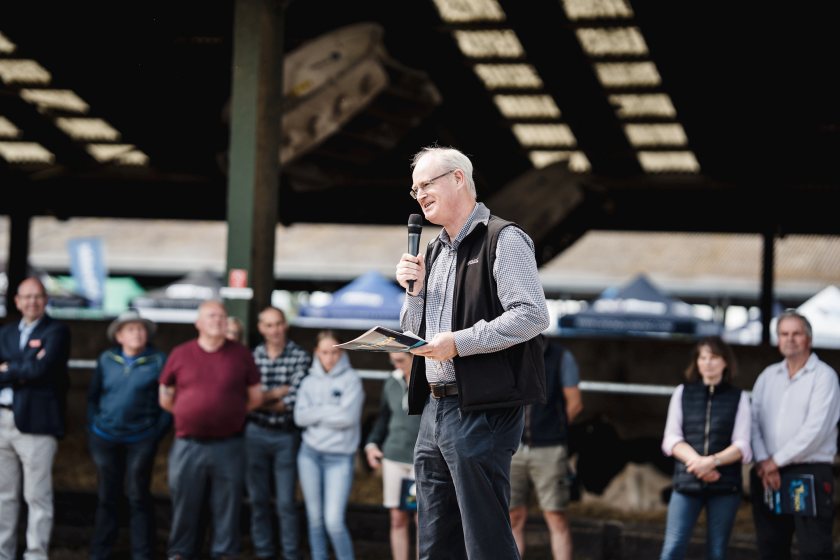Gold Cup triumph highlights dairy innovation at Harper Adams

Harper Adams University threw open its gates to over 600 visitors as it celebrated a landmark Gold Cup win—cementing its place at the forefront of British dairy farming.
The event followed Harper Adams' recent win of the UK’s most prestigious dairy accolade—the NMR RABDF Gold Cup—recognising outstanding herd performance, sustainability and forward-thinking innovation.
Visitors were invited to explore the university’s Future Farm and attend a programme of talks and technical workshops, with insights from leading voices in the dairy sector.
Opening the event, deputy vice-chancellor Professor Michael Lee described the Gold Cup victory as “one of the proudest moments of my time at Harper Adams University,” and praised the team effort and long-term vision that brought the award home.
The upbeat mood was echoed by keynote speaker and well-known dairy market commentator Chris Walkland, who provided a confident outlook on milk prices in the months ahead.
“Lots of milk processors are holding their milk prices for August, so you should be all really positive about the next few months,” he told the audience.
Mr Walkland acknowledged the 4.1% drop in the 1 July Global Dairy Trade (GDT) auction—the sharpest decline in a year—but reassured farmers that UK prices should remain stable.
“I don’t think this market slide will affect your milk prices,” he said. “It’s a bigger issue for New Zealand. Yes, EU butter prices are down a bit, but cream is flying.
"It hit £2.85 and rose to £2.90 by the end of last week—that’s exceptional for this time of year.”
He added: “If it weren’t for the insane amount of milk you’re producing, I think we’d be talking about a price rise, not a drop. But processors don’t want more milk. They might hold off on increasing the price, just to avoid fuelling production further.”
Reflecting on farm income performance, Mr Walkland noted that May 2025 ranked as the second-highest month on record for total milk income, based on price and volume combined.
“March is fourth highest, April seventh, January ninth, and June tenth. The highest month was December 2022. But back then, the money was flying out the window as fast as it came in. Now, hopefully, some of it is sticking to the sides,” he said.
He also reminded farmers of the new Fair Dealing Obligations (Milk) regulation—FDOM—which takes effect from 9 July.
“If your buyer hasn’t issued a compliant contract by then, technically they’re breaking the law. You’re not—so don’t panic,” he explained.
“What it should do is give you more transparency around pricing—and the ability to complain a bit more easily.”
RABDF chairman Robert Craig praised Harper Adams’ Future Farm as a leading example of how technology, skilled people and research-driven practices can work together to improve performance, sustainability and animal health.
“This Gold Cup win is thoroughly deserved, and it’s great to see how academic research and commercial farming can come together to shape the future of our industry,” he said.








